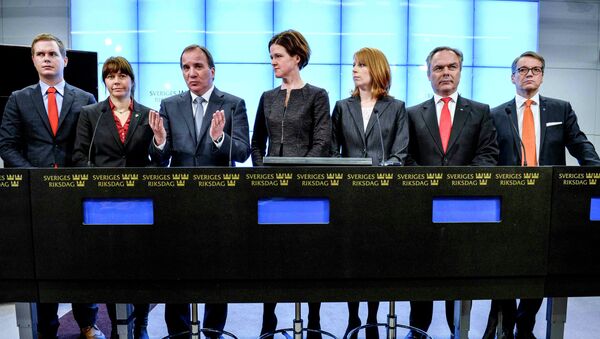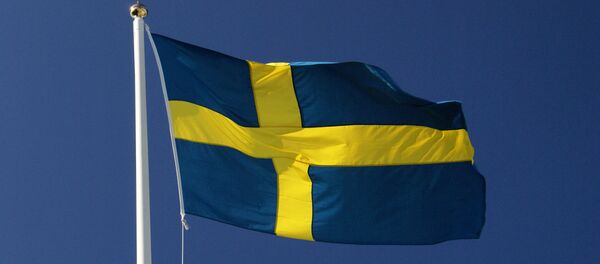“What I can say now is that with this agreement, the government will not make a decision to hold extra elections,” Lofven told reporters.
The deal, signed by six political parties that together represent Sweden’s largest center-left and center-right political alliances, is valid until 2022 and stipulates that the opposition is not to vote down a minority government’s budget.
The blocs also agreed to negotiate on three main policy areas, namely defense and security, pensions, and energy.
In addition, the agreement reads that “the prime minister candidate who collects support from the party bloc that is bigger than all other possible government bloc should be appointed."
According to Lofven, the newly reached deal is "the best thing that could have happened for Sweden.”
Shortly after Lofven's announcement, the nationalist Sweden Democrats (SD) party vowed to introduce a motion of no confidence against the prime minister. “I have no trust left in him,” SD head Mattias Karlsson was cited as saying by the Swedish TT news agency.
Earlier in December, Lofven announced that snap elections would be held in Sweden on March 22, after the Sweden Democrats rejected his minority leftist government’s budget proposal in the parliament. SD’s decision left Lofven’s government with the minority of votes, throwing the country into political turmoil.
SD, the Sweden’s third largest party, is not part of any political alliance, being repeatedly rejected by the other parties in the parliament.
Following the budget rejection, the Swedish prime minister expressed concern that SD, which currently holds 49 of 349 parliament seats, would repeatedly reject budgets proposed by any government, creating a long-lasting political crisis.



